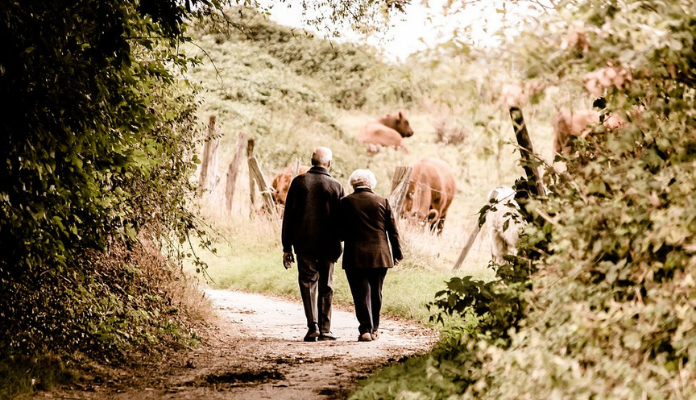Are Your Grandparents Romantic?
Relationships across a lifespan are fascinating, subject to an individuals’ trajectory through lite, ranging from birth, childhood, adolescence and adulthood with exploration of intimacy, matrimony, changing life roles, companionship and beyond.
From a psychological perspective, relationships of all kinds leave an indelible mark on the health and psychological well-being of an individual. The peaks and troughs of relationship satisfaction can be mapped onto different stages in life, According to the socio-emotional selectivity theory, people become selective about their choices by investing in emotionally meaningful goals and activities as time horizons shrink with age.
Age And Emotional Satisfaction
From a Gerontological perspective, as people age, their mortality takes priority and they become selective in how they choose to spend their time. Because they value emotional satisfaction more, older adults often spend more time with familiar individuals, with whom they have had rewarding relationships and positive experiences, thus narrowing their socio-cultural networks.
In the book written by Kathleen Bergers, ‘Developing Person through the Lifespan,’ the author talks about how many elderly people have died before the birth of their grandchildren. But now, with advances in medicine and longer lifespans, some families span five generations with three being fairly common. This results in families sharing lives across generations. Intergenerational relationships are becoming more important as many grandparents have only one or two grandchildren.
While grandparents provide babysitting and financial help, they enjoy their independence from the demands of child rearing and refrain from too much interference in the West. Sometimes, grandparents are solely responsible for their grandchildren due to circumstances that are forced upon them. In such cases, more illness and depression are noticeable.
Retirement with more time on hand, also affects relationships. The opportunity to spend more time with the partner may create friction or enjoyment between them. The death of a partner in a relationship is traumatic. Where emotional dependence was minimal and the relationship positive, the coping mechanisms are stronger and the risk of depression is lower, with women coping much better than men.
We are in an era of significant demographic change. According to statistics from the UN, the population of older people has trebled since 1950 and is expected to treble again within the next forty years or so. As life progresses, intimacy in relationships becomes very pronounced. Research shows that fulfilling relationships are beneficial for the physical, mental and emotional well-being of a person.
Age And Relationships
With the ageing population on the rise, an understanding of how successful romantic relationships can be established and maintained will have far reaching effects on the older adult population. Research conducted by Adrienne Jackson on sexuality in adults aged 65 and older, states that organizing and developing sexual health interventions becomes easier when the relationship between happiness and love is highlighted.
It has been said before, that older couples tend be happier in matrimony with age. Older married couples who engage in sexual activity are more likely to be happy both with their relationship and their lives than those who have more infrequent sex.
A survey conducted by the General Social Surveys in USA on 238 married individuals aged 65 and older, revealed that sexual activity was linked with both general and marital happiness. Only about 40 per cent of participants stated that they were very happy with lite even if they did not have sex in the last 12 months while the remaining 60 per cent said they were very happy having sex more than once a month.
Romantic Relationships In The Elderly
Also, it is important to note that love and romance are not exclusive to youngsters. The belief that older people are asexual beings whose emotional life is solely oriented towards grandchildren, chess and knitting is a myth. Seniors desire and need romantic, intimate relationships, just as younger people do.
In the West, romance among elders living in assisted living and nursing homes demands attention to issues like their rights as adults and how intimate they can get under the observation of family and administration.
With dementia on the rise, the elder’s mental capability to consent becomes the issue. They have the right to be treated with respect and dignity as individuals, but where do the rights of individuals stop and the comfort level of others take over?
Read This Next:
